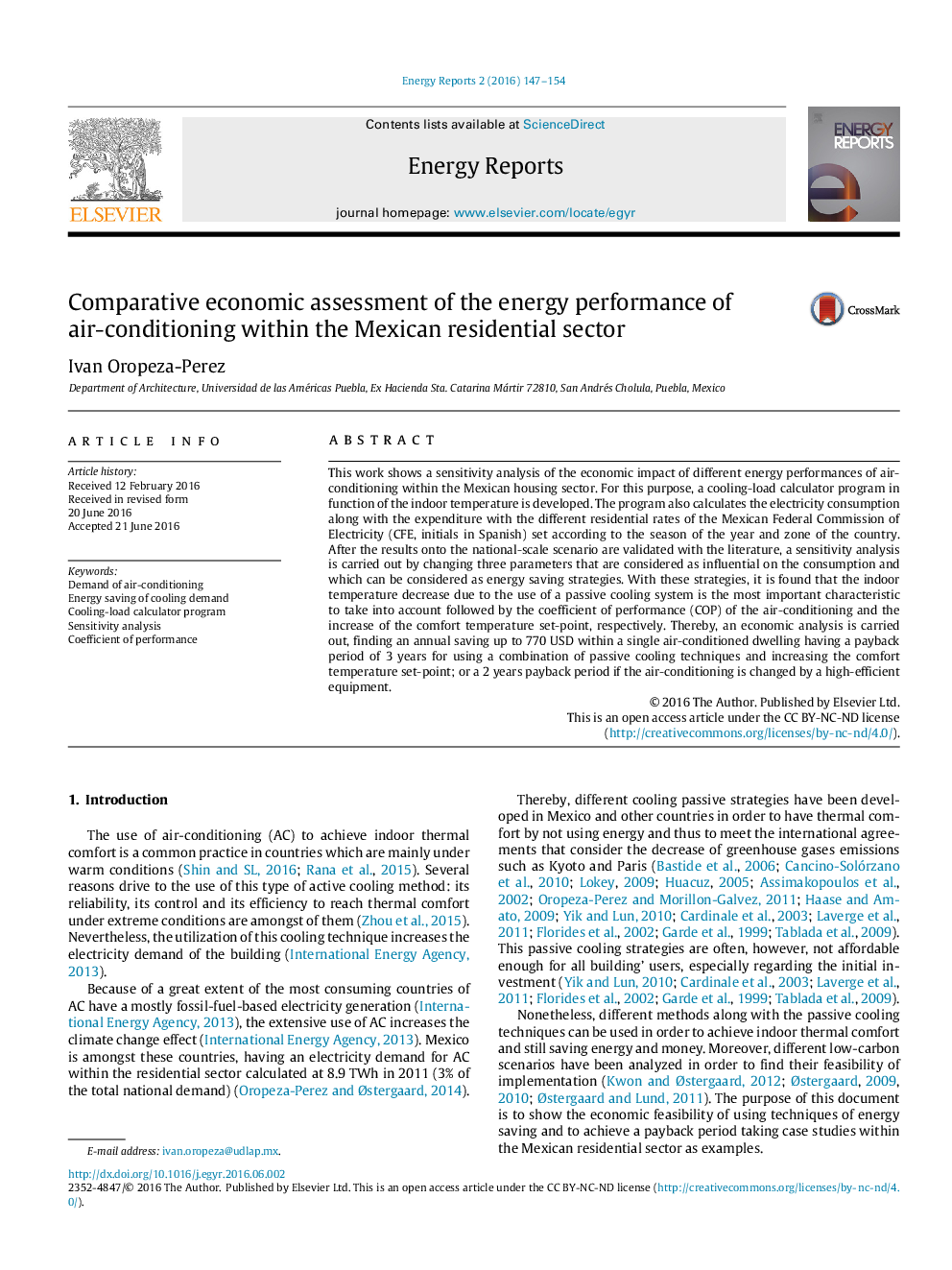| Article ID | Journal | Published Year | Pages | File Type |
|---|---|---|---|---|
| 1736753 | Energy Reports | 2016 | 8 Pages |
This work shows a sensitivity analysis of the economic impact of different energy performances of air-conditioning within the Mexican housing sector. For this purpose, a cooling-load calculator program in function of the indoor temperature is developed. The program also calculates the electricity consumption along with the expenditure with the different residential rates of the Mexican Federal Commission of Electricity (CFE, initials in Spanish) set according to the season of the year and zone of the country. After the results onto the national-scale scenario are validated with the literature, a sensitivity analysis is carried out by changing three parameters that are considered as influential on the consumption and which can be considered as energy saving strategies. With these strategies, it is found that the indoor temperature decrease due to the use of a passive cooling system is the most important characteristic to take into account followed by the coefficient of performance (COP) of the air-conditioning and the increase of the comfort temperature set-point, respectively. Thereby, an economic analysis is carried out, finding an annual saving up to 770 USD within a single air-conditioned dwelling having a payback period of 3 years for using a combination of passive cooling techniques and increasing the comfort temperature set-point; or a 2 years payback period if the air-conditioning is changed by a high-efficient equipment.
